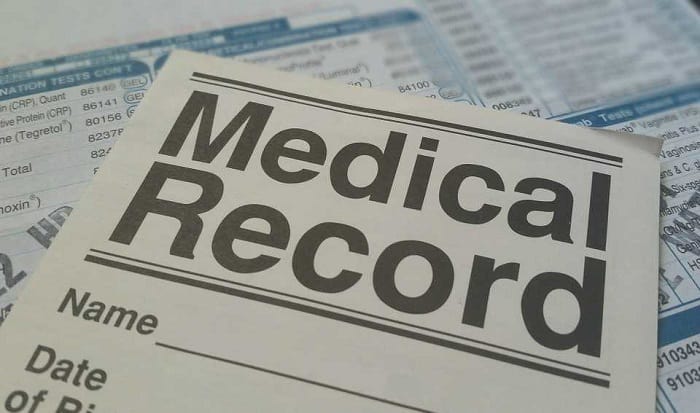 how do i get my military medical records" width="700" height="415" />
how do i get my military medical records" width="700" height="415" /> how do i get my military medical records" width="700" height="415" />
how do i get my military medical records" width="700" height="415" />
You may need to request military medical records to apply for disability compensation. But this can be a tricky process if you head into it uninformed.
Understanding this, we have put together this step-by-step guide answering, “How do I get my military medical records?” By the time you finish reading, you should be able to get a copy of your military medical records with ease.
The summarized steps for requesting medical records from the military are as follows:
Continue reading to get the details of each of these steps!
Table of Contents

As with acquiring other military records (i.e., the DD 214), before you can obtain your military medical records, you will need to have the following information ready:
The later steps will be a lot more convenient if you have this prepared beforehand.
Once you have all this information, proceed with the next steps.
There are a few methods to request your records.
The processing time for requests varies because almost 20,000 requests are processed weekly. Still, typically, you will have to give it 10 days. Nearly 92% of military medical record requests are processed within 10 days, though a few specific health record types might involve delays.
If you were discharged from the beginning of the 90s through 2014, your record location may be as follows:
If you are under TRICARE and are requesting military medical records, you can obtain a DoD electronic health record.
Note that you must tick the following to view and download health information from your DoD electronic record:
If you retired or separated from the military after January 1, 2014, your paper copies of Service Treatment Records (STRs) should be digitized following your retirement or separation. If they do not contain sensitive information, then you can find them through your Patient Portal on TRICARE Online or MHS GENESIS.
You can also request a full copy of your health record in person at your home military hospital or clinic.
For the TOL Patient Portal, follow these instructions:
Note: Personal health information can include medication profile, allergy profile, problem lists, lab results, etc.
For the MHS GENESIS Patient Portal, follow these instructions:
Note: If you do not already have a DS Premium Level 2 Account, visit the DS Logon Help Center to sign up for one. Keep in mind that you will have to provide personal and financial information to verify your identity.
If you are not sure about whether your military clinic or hospital uses TOL or MHS GENESIS, click here to browse for clarification.
After you leave the military, the DoD may send your health information to the VA — Department of Veterans Affairs. Therefore, your military medical records may be kept at the Department of Veterans Affairs Records Management Center in St. Louis, MO.
It is best to request paper copies of your medical record before you leave the military. However, if you would like someone else to have access to your health information, you can do so by filing the DD Form 2870 (Authorization for Disclosure of Medical or Dental Information).

You can get copies of inpatient records, which are related to hospitalizations, fetal tracings, and ambulance services from the military hospital or clinic you received the care.
You will need to provide your full name, your sponsor’s social security number, DoD ID number, and your most recent treatment’s place and date(s).
If this does not work, consider the following:
For active duty service members:
For veterans or next-of-kin:
For active duty or former active duty family member, retiree, or retiree family member eligible to receive medical care at military clinics or hospitals:
For active duty or former active duty family member, retiree, or retiree family member no longer eligible to receive medical care at military clinics or hospitals:
Now that you have finished reading this article on, “How do I get my military medical records?” requesting records, regardless of whether it is Navy medical records or Army medical records, is no longer a problem.
If you still have any questions, reach out to us in the comments below. And if you have thoughts to share, you can leave them in the comments, too. Otherwise, please help us share this article with other readers, like your family members and friends. Thank you in advance!